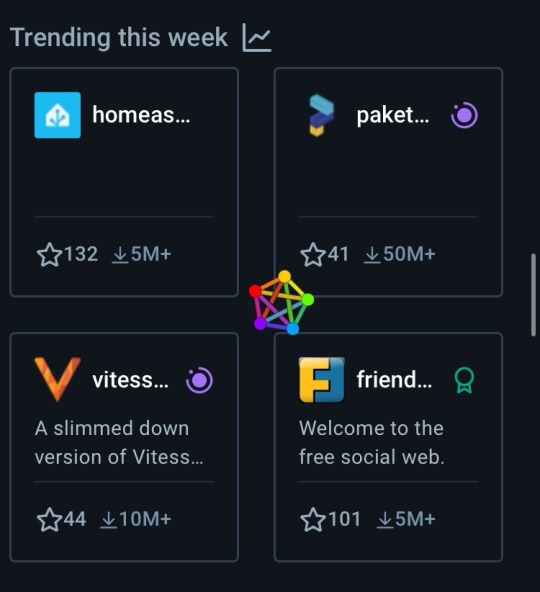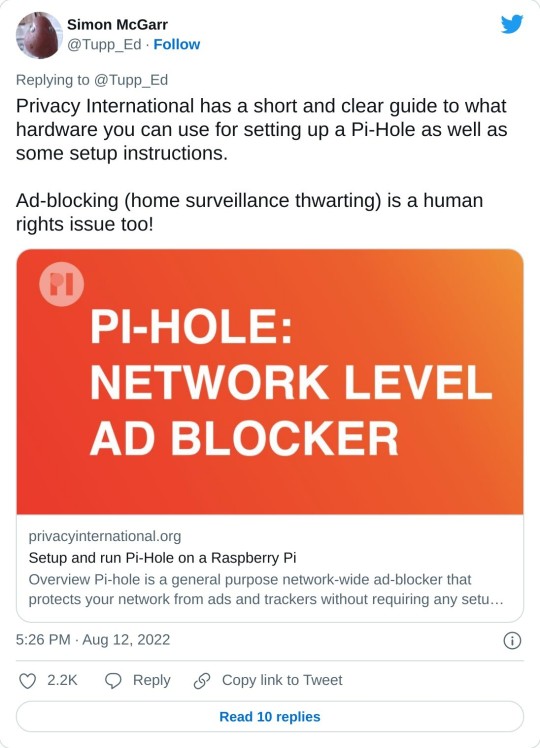#home assistant
Explore tagged Tumblr posts
Text
The enshittification of garage-door openers reveals a vast and deadly rot

I'll be at the Studio City branch of the LA Public Library on Monday, November 13 at 1830hPT to launch my new novel, The Lost Cause. There'll be a reading, a talk, a surprise guest (!!) and a signing, with books on sale. Tell your friends! Come on down!

How could this happen? Owners of Chamberlain MyQ automatic garage door openers just woke up to discover that the company had confiscated valuable features overnight, and that there was nothing they could do about it.
Oh, we know what happened, technically speaking. Chamberlain shut off the API for its garage-door openers, which breaks their integration with home automation systems like Home Assistant. The company even announced that it was doing this, calling the integration an "unauthorized usage" of its products, though the "unauthorized" parties in this case are the people who own Chamberlain products:
https://chamberlaingroup.com/press/a-message-about-our-decision-to-prevent-unauthorized-usage-of-myq
We even know why Chamberlain did this. As Ars Technica's Ron Amadeo points out, shutting off the API is a way for Chamberlain to force its customers to use its ad-beshitted, worst-of-breed app, so that it can make a few pennies by nonconsensually monetizing its customers' eyeballs:
https://arstechnica.com/gadgets/2023/11/chamberlain-blocks-smart-garage-door-opener-from-working-with-smart-homes/
But how did this happen? How did a giant company like Chamberlain come to this enshittening juncture, in which it felt empowered to sabotage the products it had already sold to its customers? How can this be legal? How can it be good for business? How can the people who made this decision even look themselves in the mirror?
To answer these questions, we must first consider the forces that discipline companies, acting against the impulse to enshittify their products and services. There are four constraints on corporate conduct:
I. Competition. The fear of losing your business to a rival can stay even the most sociopathic corporate executive's hand.
II. Regulation. The fear of being fined, criminally sanctioned, or banned from doing business can check the greediest of leaders.
III. Capability. Corporate executives can dream up all kinds of awful ways to shift value from your side of the ledger to their own, but they can only do the things that are technically feasible.
IV. Self-help. The possibility of customers modifying, reconfiguring or altering their products to restore lost functionality or neutralize antifeatures carries an implied threat to vendors. If a printer company's anti-generic-ink measures drives a customer to jailbreak their printers, the original manufacturer's connection to that customer is permanently severed, as the customer creates a durable digital connection to a rival.
When companies act in obnoxious, dishonest, shitty ways, they aren't merely yielding to temptation – they are evading these disciplining forces. Thus, the Great Enshittening we are living through doesn't reflect an increase in the wickedness of corporate leadership. Rather, it represents a moment in which each of these disciplining factors have been gutted by specific policies.
This is good news, actually. We used to put down rat poison and we didn't have a rat problem. Then we stopped putting down rat poison and rats are eating us alive. That's not a nice feeling, but at least we know at least one way of addressing it – we can start putting down poison again. That is, we can start enforcing the rules that we stopped enforcing, in living memory. Having a terrible problem is no fun, but the best kind of terrible problem to have is one that you know a solution to.
As it happens, Chamberlain is a neat microcosm for all the bad policy choices that created the Era of Enshittification. Let's go through them:
Competition: Chamberlain doesn't have to worry about competition, because it is owned by a private equity fund that "rolled up" all of Chamberlain's major competitors into a single, giant firm. Most garage-door opener brands are actually Chamberlain, including "LiftMaster, Chamberlain, Merlin, and Grifco":
https://www.lakewoodgaragedoor.biz/blog/the-history-of-garage-door-openers
This is a pretty typical PE rollup, and it exploits a bug in US competition law called "Antitrust's Twilight Zone":
https://pluralistic.net/2022/12/16/schumpeterian-terrorism/#deliberately-broken
When companies buy each other, they are subject to "merger scrutiny," a set of guidelines that the FTC and DoJ Antitrust Division use to determine whether the outcome is likely to be bad for competition. These rules have been pretty lax since the Reagan administration, but they've currently being revised to make them substantially more strict:
https://www.justice.gov/opa/pr/justice-department-and-ftc-seek-comment-draft-merger-guidelines
One of the blind spots in these merger guidelines is an exemption for mergers valued at less than $101m. Under the Hart-Scott-Rodino Act, these fly under the radar, evading merger scrutiny. That means that canny PE companies can roll up dozens and dozens of standalone businesses, like funeral homes, hospital beds, magic mushrooms, youth addiction treatment centers, mobile home parks, nursing homes, physicians’ practices, local newspapers, or e-commerce sellers:
http://www.economicliberties.us/wp-content/uploads/2022/12/Serial-Acquisitions-Working-Paper-R4-2.pdf
By titrating the purchase prices, PE companies – like Blackstone, owners of Chamberlain and all the other garage-door makers – can acquire a monopoly without ever raising a regulatory red flag.
But antitrust enforcers aren't helpless. Under (the long dormant) Section 7 of the Clayton Act, competition regulators can block mergers that lead to "incipient monopolization." The incipiency standard prevented monopolies from forming from 1914, when the Clayton Act passed, until the Reagan administration. We used to put down rat poison, and we didn't have rats. We stopped, and rats are gnawing our faces off. We still know where the rat poison is – maybe we should start putting it down again.
On to regulation. How is it possible for Chamberlain to sell you a garage-door opener that has an API and works with your chosen home automation system, and then unilaterally confiscate that valuable feature? Shouldn't regulation protect you from this kind of ripoff?
It should, but it doesn't. Instead, we have a bunch of regulations that protect Chamberlain from you. Think of binding arbitration, which allows Chamberlain to force you to click through an "agreement" that takes away your right to sue them or join a class-action suit:
https://pluralistic.net/2022/10/20/benevolent-dictators/#felony-contempt-of-business-model
But regulation could protect you from Chamberlain. Section 5 of the Federal Trade Commission Act allows the FTC to ban any "unfair and deceptive" conduct. This law has been on the books since 1914, but Section 5 has been dormant, forgotten and unused, for decades. The FTC's new dynamo chair, Lina Khan, has revived it, and is use it like a can-opener to free Americans who've been trapped by abusive conduct:
https://pluralistic.net/2023/01/10/the-courage-to-govern/#whos-in-charge
Khan's used Section 5 powers to challenge privacy invasions, noncompete clauses, and other corporate abuses – the bait-and-switch tactics of Chamberlain are ripe for a Section 5 case. If you buy a gadget because it has five features and then the vendor takes two of them away, they are clearly engaged in "unfair and deceptive" conduct.
On to capability. Since time immemorial, corporate leaders have fetishized "flexibility" in their business arrangements – like the ability to do "dynamic pricing" that changes how much you pay for something based on their guess about how much you are willing to pay. But this impulse to play shell games runs up against the hard limits of physical reality: grocers just can't send an army of rollerskated teenagers around the store to reprice everything as soon as a wealthy or desperate-looking customer comes through the door. They're stuck with crude tactics like doubling the price of a flight that doesn't include a Saturday stay as a way of gouging business travelers on an expense account.
With any shell-game, the quickness of the hand deceives the eye. Corporate crooks armed with computers aren't smarter or more wicked than their analog forebears, but they are faster. Digital tools allow companies to alter the "business logic" of their services from instant to instant, in highly automated ways:
https://pluralistic.net/2023/02/19/twiddler/
The monopoly coalition has successfully argued that this endless "twiddling" should not be constrained by privacy, labor or consumer protection law. Without these constraints, corporate twiddlers can engage in all kinds of ripoffs, like wage theft and algorithmic wage discrimination:
https://pluralistic.net/2023/04/12/algorithmic-wage-discrimination/#fishers-of-men
Twiddling is key to the Darth Vader MBA ("I am altering the deal. Pray I don't alter it further"), in which features are confiscated from moment to moment, without warning or recourse:
https://pluralistic.net/2023/10/26/hit-with-a-brick/#graceful-failure
There's no reason to accept the premise that violating your privacy, labor rights or consumer rights with a computer is so different from analog ripoffs that existing laws don't apply. The unconstrained twiddling of digital ripoff artists is a plague on billions of peoples' lives, and any enforcer who sticks up for our rights will have an army of supporters behind them.
Finally, there's the fear of self-help measures. All the digital flexibility that tech companies use to take value away can be used to take it back, too. The whole modern history of digital computers is the history of "adversarial interoperability," in which the sleazy antifeatures of established companies are banished through reverse-engineering, scraping, bots and other forms of technological guerrilla warfare:
https://www.eff.org/deeplinks/2019/10/adversarial-interoperability
Adversarial interoperability represents a serious threat to established business. If you're a printer company gouging on toner, your customers might defect to a rival that jailbreaks your security measures. That's what happened to Lexmark, who lost a case against the toner-refilling company Static Controls, which went on to buy Lexmark:
https://www.eff.org/deeplinks/2019/06/felony-contempt-business-model-lexmarks-anti-competitive-legacy
Sure, your customers are busy and inattentive and you can degrade the quality of your product a lot before they start looking for ways out. But once they cross that threshold, you can lose them forever. That's what happened to Microsoft: the company made the tactical decision to produce a substandard version of Office for the Mac in a drive to get Mac users to switch to Windows. Instead, Apple made Iwork (Pages, Numbers and Keynote), which could read and write every Office file, and Mac users threw away Office, the only Microsoft product they owned, permanently severing their relationship to the company:
https://www.eff.org/deeplinks/2019/06/adversarial-interoperability-reviving-elegant-weapon-more-civilized-age-slay
Today, companies can operate without worrying about this kind of self-help measure. There' a whole slew of IP rights that Chamberlain can enforce against you if you try to fix your garage-door opener yourself, or look to a competitor to sell you a product that restores the feature they took away:
https://locusmag.com/2020/09/cory-doctorow-ip/
Jailbreaking your Chamberlain gadget in order to make it answer to a rival's app involves bypassing a digital lock. Trafficking in a tool to break a digital lock is a felony under Section 1201 of the Digital Millennium Copyright, carrying a five-year prison sentence and a $500,000 fine.
In other words, it's not just that tech isn't regulated, allowing for endless twiddling against your privacy, consumer rights and labor rights. It's that tech is badly regulated, to permit unlimited twiddling by tech companies to take away your rightsand to prohibit any twiddling by you to take them back. The US government thumbs the scales against you, creating a regime that Jay Freeman aptly dubbed "felony contempt of business model":
https://pluralistic.net/2022/10/23/how-to-fix-cars-by-breaking-felony-contempt-of-business-model/
All kinds of companies have availed themselves of this government-backed superpower. There's DRM – digital locks, covered by DMCA 1201 – in powered wheelchairs:
https://www.eff.org/deeplinks/2022/06/when-drm-comes-your-wheelchair
In dishwashers:
https://pluralistic.net/2021/05/03/cassette-rewinder/#disher-bob
In treadmills:
https://pluralistic.net/2021/06/22/vapescreen/#jane-get-me-off-this-crazy-thing
In tractors:
https://pluralistic.net/2022/05/08/about-those-kill-switched-ukrainian-tractors/
It should come as no surprise to learn that Chamberlain has used DMCA 1201 to block interoperable garage door opener components:
https://scholarship.law.marquette.edu/cgi/viewcontent.cgi?article=1233&context=iplr
That's how we arrived at this juncture, where a company like Chamberlain can break functionality its customers value highly, solely to eke out a minuscule new line of revenue by selling ads on their own app.
Chamberlain bought all its competitors.
Chamberlain operates in a regulatory environment that is extremely tolerant of unfair and deceptive practices. Worse: they can unilaterally take away your right to sue them, which means that if regulators don't bestir themselves to police Chamberlain, you are shit out of luck.
Chamberlain has endless flexibility to unilaterally alter its products' functionality, in fine-grained ways, even after you've purchased them.
Chamberlain can sue you if you try to exercise some of that same flexibility to protect yourself from their bad practices.
Combine all four of those factors, and of course Chamberlain is going to enshittify its products. Every company has had that one weaselly asshole at the product-planning table who suggests a petty grift like breaking every one of the company's customers' property to sell a few ads. But historically, the weasel lost the argument to others, who argued that making every existing customer furious would affect the company's bottom line, costing it sales and/or fines, and prompting customers to permanently sever their relationship with the company by seeking out and installing alternative software. Take away all the constraints on a corporation's worst impulses, and this kind of conduct is inevitable:
https://pluralistic.net/2023/07/28/microincentives-and-enshittification/
This isn't limited to Chamberlain. Without the discipline of competition, regulation, self-help measures or technological limitations, every industry in undergoing wholesale enshittification. It's not a coincidence that Chamberlain's grift involves a push to move users into its app. Because apps can't be reverse-engineered and modified without risking DMCA 1201 prosecution, forcing a user into an app is a tidy and reliable way to take away that user's rights.
Think about ad-blocking. One in four web users has installed an ad-blockers ("the biggest boycott in world history" -Doc Searls). Zero app users have installed app-blockers, because they don't exist, because making one is a felony. An app is just a web-page wrapped in enough IP to make it a crime to defend yourself against corporate predation:
https://pluralistic.net/2023/08/27/an-audacious-plan-to-halt-the-internets-enshittification-and-throw-it-into-reverse/
The temptation to enshitiffy isn't new, but the ability to do so without consequence is a modern phenomenon, the intersection of weak policy enforcement and powerful technology. Your car is autoenshittified, a rolling rent-seeking platform that spies on you and price-gouges you:
https://pluralistic.net/2023/07/24/rent-to-pwn/#kitt-is-a-demon
Cars are in an uncontrolled skid over Enshittification Cliff. Honda, Toyota, VW and GM all sell cars with infotainment systems that harvest your connected phone's text-messages and send them to the corporation for data-mining. What's more, a judge in Washington state just ruled that this is legal:
https://therecord.media/class-action-lawsuit-cars-text-messages-privacy
While there's no excuse for this kind of sleazy conduct, we can reasonably anticipate that if our courts would punish companies for engaging in it, they might be able to resist the temptation. No wonder Mozilla's latest Privacy Not Included research report called cars "the worst product category we have ever reviewed":
https://foundation.mozilla.org/en/privacynotincluded/articles/its-official-cars-are-the-worst-product-category-we-have-ever-reviewed-for-privacy/
I mean, Nissan tries to infer facts about your sex life and sells those inferences to marketing companies:
https://foundation.mozilla.org/en/privacynotincluded/nissan/
But the OG digital companies are the masters of enshittification. Microsoft has been at this game for longer than anyone, and every day brings a fresh way that Microsoft has worsened its products without fear of consequence. The latest? You can't delete your OneDrive account until you provide an acceptable explanation for your disloyalty:
https://www.theverge.com/2023/11/8/23952878/microsoft-onedrive-windows-close-app-notification
It's tempting to think that the cruelty is the point, but it isn't. It's almost never the point. The point is power and money. Unscrupulous businesses have found ways to make money by making their products worse since the industrial revolution. Here's Jules Dupuis, writing about 19th century French railroads:
It is not because of the few thousand francs which would have to be spent to put a roof over the third-class carriages or to upholster the third-class seats that some company or other has open carriages with wooden benches. What the company is trying to do is to prevent the passengers who can pay the second class fare from traveling third class; it hits the poor, not because it wants to hurt them, but to frighten the rich. And it is again for the same reason that the companies, having proved almost cruel to the third-class passengers and mean to the second-class ones, become lavish in dealing with first-class passengers. Having refused the poor what is necessary, they give the rich what is superfluous.
https://www.tumblr.com/mostlysignssomeportents/731357317521719296/having-refused-the-poor-what-is-necessary-they
But as bad as all this is, let me remind you about the good part: we know how to stop companies from enshittifying their products. We know what disciplines their conduct: competition, regulation, capability and self-help measures. Yes, rats are gnawing our eyeballs, but we know which rat-poison to use, and where to put it to control those rats.
Competition, regulation, constraint and self-help measures all backstop one another, and while one or a few can make a difference, they are most powerful when they're all mobilized in concert. Think of the failure of the EU's landmark privacy law, the GDPR. While the GDPR proved very effective against bottom-feeding smaller ad-tech companies, the worse offenders, Meta and Google, have thumbed their noses at it.
This was enabled in part by the companies' flying an Irish flag of convenience, maintaining the pretense that they have to be regulated in a notorious corporate crime-haven:
https://pluralistic.net/2023/05/15/finnegans-snooze/#dirty-old-town
That let them get away with all kinds of shenanigans, like ignoring the GDPR's requirement that you should be able to easily opt out of data-collection without having to go through cumbersome "cookie consent" dialogs or losing access to the service as punishment for declining to be tracked.
As the noose has tightened around these surveillance giants, they're continuing to play games. Meta now says that the only way to opt out of data-collection in the EU is to pay for the service:
https://pluralistic.net/2023/10/30/markets-remaining-irrational/#steins-law
This is facially illegal under the GDPR. Not only are they prohibited from punishing you for opting out of collection, but the whole scheme ignores the nature of private data collection. If Facebook collects the fact that you and I are friends, but I never opted into data-collection, they have violated the GDPR, even if you were coerced into granting consent:
https://www.nakedcapitalism.com/2023/11/the-pay-or-consent-challenge-for-platform-regulators.html
The GDPR has been around since 2016 and Google and Meta are still invading 500 million Europeans' privacy. This latest delaying tactic could add years to their crime-spree before they are brought to justice.
But most of this surveillance is only possible because so much of how you interact with Google and Meta is via an app, and an app is just a web-page that's a felony to make an ad-blocker for. If the EU were to legalize breaking DRM – repealing Article 6 of the 2001 Copyright Directive – then we wouldn't have to wait for the European Commission to finally wrestle these two giant companies to the ground. Instead, EU companies could make alternative clients for all of Google and Meta's services that don't spy on you, without suffering the fate of OG App, which tried this last winter and was shut down by "felony contempt of business model":
https://pluralistic.net/2023/02/05/battery-vampire/#drained
Enshittification is demoralizing. To quote @wilwheaton, every update to the services we use inspires "dread of 'How will this complicate things as I try to maintain privacy and sanity in a world that demands I have this thing to operate?'"
https://wilwheaton.tumblr.com/post/698603648058556416/cory-doctorow-if-you-see-this-and-have-thoughts
But there are huge natural constituencies for the four disciplining forces that keep enshittification at bay.
Remember, Antitrust's Twilight Zone doesn't just allow rollups of garage-door opener companies – it's also poison for funeral homes, hospital beds, magic mushrooms, youth addiction treatment centers, mobile home parks, nursing homes, physicians’ practices, local newspapers, or e-commerce sellers.
The Binding Arbitration scam that stops Chamberlain customers from suing the company also stops Uber drivers from suing over stolen wages, Turbotax customers from suing over fraud, and many other victims of corporate crime from getting a day in court.
The failure to constrain twiddling to protect privacy, labor rights and consumer rights enables a host of abuses, from stalking, doxing and SWATting to wage theft and price gouging:
https://pluralistic.net/2023/11/06/attention-rents/#consumer-welfare-queens
And Felony Contempt of Business Model is used to screw you over every time you refill your printer, run your dishwasher, or get your Iphone's screen replaced.
The actions needed to halt and reverse this enshittification are well understood, and the partisans for taking those actions are too numerous to count. It's taken a long time for all those individuals suffering under corporate abuses to crystallize into a movement, but at long last, it's happening.

If you'd like an essay-formatted version of this post to read or share, here's a link to it on pluralistic.net, my surveillance-free, ad-free, tracker-free blog:
https://pluralistic.net/2023/11/09/lead-me-not-into-temptation/#chamberlain

Image: Cryteria (modified) https://commons.wikimedia.org/wiki/File:HAL9000.svg
CC BY 3.0 https://creativecommons.org/licenses/by/3.0/deed.en
#pluralistic#monopolists#anticircumvention#myq#home assistant#pay or consent#enshittification#surveillance#autoenshittification#privacy#self-help measures#microsoft#onedrive#twiddling#comcom#competitive compatibility#interop#interoperability#adversarial interoperability#felony contempt of business model#darth vader mba
376 notes
·
View notes
Text
Home Assistant borked a couple of days ago after an update, and I've been trying to restore it since. Annoyingly haven't managed yet. Double annoying since the system was smooth sailing from day one - and now I can't get it to work anymore. Grump grump grump.
9 notes
·
View notes
Text
My Introduction
Name: Zee
Pronouns: He/Him
Age: 20
Interests: Gaming, Computers and Electronics, Music, Music Tech - Specifics: Satisfactory, Minecraft, BeamNG, Phantom Forces, Marvel Rivals, Cities Skylines, Subnautica, TLOU, FNAF, LLM, ML, PC Building, HomeAssistant, IoT, Self-Hosting, Automation, Drones, Trains, Photography, House, Jazz, Fusion, Funk, D&B, Sound Engineering, Studio Design, Recording, Mixing, Drumming
Looking forward to meeting new people and sharing my experiences!
#satisfactory#minecraft#beamng#llm#chatbots#machine learning#home assistant#iot#automation#photography#sound engineer#recording studio#musicproduction#protools#music#gaming#diy#pc build#model railroad#self hosted#modding#friend application#trains#computers#friends
4 notes
·
View notes
Text
Homebridge vs Home Assistant: Which One to Choose?
If you're diving into smart home automation, you’ve probably come across Homebridge and Home Assistant. Here's a quick breakdown:
✨ Homebridge is great if you're in the Apple ecosystem and just need to connect non-HomeKit devices to the Home app. It’s easy to set up and perfect for beginners looking for simple integration.
���� Home Assistant offers more flexibility and customization. It supports tons of devices and is perfect for advanced users who want full control over their smart home. It’s open-source and works with any ecosystem.
In short:
Homebridge = Simplicity + Apple compatibility
Home Assistant = Power, flexibility, and full control
Choose based on your needs, or even use both! 🌟
#HomeAutomation #Homebridge #HomeAssistant #SmartHome #Tech
#apple homekit#homebridge#home assistant#spot the difference#guide#blog#smart home devices#smart home technology#smart home automation#home automation
2 notes
·
View notes
Text

WE LOVE TO SEE IT! Friendica's official [virtual image] trending on Docker. 🥹🐳
(Not to excuse Home Assistant receiving the first spot. 🏡🎖️ It's a widely recognized and powerful open-source automation network for your smart-home. In competition with other integrated hub systems, notably Alexa or Google Assistant, aside from being FOSS: it's privacy-oriented and far more intuitive/extensive with its capabilities.)
#JOIN THE FEDIVERSE#friendica#fediverse#decentralization#cybersecurity#web3#online privacy#open source#docker#home assistant
2 notes
·
View notes
Text
Making your own Home Assistant (theorising)
Disclaimer: This is all theory and speculation. I have not tested anything or made my own home assistant yet, I just looked around for libraries and hardware that are likely compatible. I have not fully tested the compatibility or quality of these, this is simply the first iteration of an idea I have.
I just got news that Amazon Alexa has lost 10 billion dollars because their business model failed. This makes me happy, and has also made me realise that you can make your own home assistant.
Here are some of the links to things (I am aware that some are amazon, but it's the most global I could find. I encourage you to find other sellers, this is just what you should need. If you find anything cheaper or more local to where you are, go for it):
Hardware:
Raspberry Pi 4: https://www.canakit.com/raspberry-pi-4-2gb.html (RAM requirements may differ, I may do testing to see what comfortably runs)
8GB MicroSD: https://www.amazon.ca/Verbatim-Premium-microSDHC-Adapter-10-44081/dp/B00CBAUI40/ref=sr_1_3?crid=3CTN6X9TJXRR2&keywords=microsd%2Bcard%2B8gb&qid=1699209597&s=electronics&sprefix=microsd%2Bcard%2B8gb%2Celectronics%2C91&sr=1-3&th=1
Microphone: https://www.amazon.ca/SunFounder-Microphone-Raspberry-Recognition-Software/dp/B01KLRBHGM?th=1
Software:
Coqui STT: https://github.com/coqui-ai/STT
Coqui TTS: https://github.com/coqui-ai/TTS
If you have it set up correctly, you should be able to run both the STT and TTS in realtime (see https://github.com/coqui-ai/TTS/discussions/904).
After all of them are set up, the only thing to do is bridge it all together with software. There are bindings to Rust for both Coqui libraries (https://github.com/tazz4843/coqui-stt and https://github.com/rowan-sl/coqui-rs), and all that's left to do is implement parsing.
The libraries can also be swapped out for different ones if you like. If you can find and implement a DECtalk library that works for the Raspberry Pi, you can use that.
If I ever figure out how to manifest this idea, I will likely make the project modular so that you can use whatever library you want. You can even fork the project and include your own library of choice (if you can bind it to Rust).
Go FOSS!
#foss#open source#raspberry pi#technology#amazon#alexa#home assistant#coqui#rust#dectalk#programming#engineering#coding#software#software engineering#github#mozilla#hardware#computer engineering
5 notes
·
View notes
Text
If you run home assistant OS on a pi or any device really you can install the 'adguard home' plugin which works the same way 😄. You'll have to point your modem to your HA install for the adguard home DNS sinkhole to work (same as with pi hole), but you'll even see a lot of in-app ads disappear if you tell it to use restrictive blocklists. It won't catch all 'in feed' ads as i think this post also mentions, but a lot of them will still be broken 😁
Also if you're on google home or some other ad vendor's home automation platform i can recommend looking into alternatives like Home Assistant. Its slightly more of a hassle to set up but you get to keep your privacy and control in return. If you're gonna set up a pi hole you might as well install HA OS if you have some smart devices
I can second the 25% figure mentioned in this post:


>First, we’ve discovered that about a quarter of all the internet connection in or out of the house were ad related. In a few hours, that’s about 10,000 out of 40,000 processed.
>We also discovered that every link on Twitter was blocked. This was solved by whitelisting the https://t.co domain.
>Once out browsing the Web, everything is loading pretty much instantly. It turns out most of that Page Loading malarkey we’ve been accustomed to is related to sites running auctions to sell Ad space to show you before the page loads. All gone now.
>We then found that the Samsung TV (which I really like) is very fond of yapping all about itself to Samsung HQ. All stopped now. No sign of any breakages in its function, so I’m happy enough with that.
>The primary source of distress came from the habitual Lemmings player in the house, who found they could no longer watch ads to build up their in-app gold. A workaround is being considered for this.
>The next ambition is to advance the Ad blocking so that it seamlessly removed YouTube Ads. This is the subject of ongoing research, and tinkering continues. All in all, a very successful experiment.
>Certainly this exceeds my equivalent childhood project of disassembling and assembling our rotary dial telephone. A project whose only utility was finding out how to make the phone ring when nobody was calling.

>Update: All4 on the telly appears not to have any ads any more. Goodbye Arnold Clarke!

>Lemmings problem now solved.
>Can confirm, after small tests, that RTÉ Player ads are now gone and the player on the phone is now just delivering swift, ad free streams at first click.
>Some queries along the lines of “Are you not stealing the internet?” Firstly, this is my network, so I may set it up as I please (or, you know, my son can do it and I can give him a stupid thumbs up in response). But there is a wider question, based on the ads=internet model.
>I’m afraid I passed the You Wouldn’t Download A Car point back when I first installed ad-blocking plug-ins on a browser. But consider my chatty TV. Individual consumer choice is not the method of addressing pervasive commercial surveillance.
>Should I feel morally obliged not to mute the TV when the ads come on? No, this is a standing tension- a clash of interests. But I think my interest in my family not being under intrusive or covert surveillance at home is superior to the ad company’s wish to profile them.


>Aside: 24 hours of Pi Hole stats suggests that Samsung TVs are very chatty. 14,170 chats a day.
>YouTube blocking seems difficult, as the ads usually come from the same domain as the videos. Haven’t tried it, but all of the content can also be delivered from a no-cookies version of the YouTube domain, which doesn’t have the ads. I have asked my son to poke at that idea.

196K notes
·
View notes
Link
看看網頁版全文 ⇨ 雜談:Home Assistant從開發板遷移到虛擬機器 / Talk: Migrating Home Assistant From a Development Board to a Virtual Machine https://blog.pulipuli.info/2025/05/talk-migrating-home-assistant-from-a-development-board-to-a-virtual-machine.html 我原本拿來架設Home Assistant的OrangePie掛點了。 藉這個機會,我將整個Home Assistant改在Proxmox VE架設。 這裡記錄一下整個過程。 ---- # Orange Pi 3 LTS 開發板 / Orange Pi 3 LTS Development Board。 一開始我是在Orange Pi 3 LTS上,用Docker架設Home Assistant。 Orange Pi 3 LTS是走ARM架構的全志1.8Hz A53 CPU ,記憶體2GB。 IO接口非常豐富,具備標準的HDMI、網路孔、藍芽、三個USB Type A接孔。 還可以用USB Type C供電,不過需要15W才能推得動。 作業系統則是要自行下載映像檔並燒錄到記憶卡中。 我用的作業系統是Ubuntu鏡像,記憶卡是十銓的128GB。 http://www.orangepi.cn/orangepiwiki/index.php/Orange_Pi_3_LTS。 詳細規格可以參考Wiki-Orange Pi的記錄。 當初選擇Orange Pi 3 LTS的原因有很多。 一般人說到開發板,大多會傾向使用樹莓派Raspberry Pi。 但當時晶片大缺貨,Raspberry Pi的價格居高不下,而且IO接口跟性能也跟我預期的有點落差。 相較之下,Orange Pi 3 LTS在1.8Ghz CPU跟2GB RAM的配置上,就有不少優勢。 而且它的HDMI也是標準尺寸,充電孔也是使用Type C,這些都是我偏好選擇Orange Pi 3 LTS的理由。 # Home Assistant的方案選擇。 https://www.home-assistant.io/installation/#advanced-installation-methods。 在Home Assistant的部署方式上,跟很多人選擇使用HA OS不同,我使用Docker來架設Home Assistant。 Docker版本的Home Assistant跟HA OS相比,缺少方便的Add-ons整合。 現在大部分Home Assistant的教學都會用到HA OS的Add-ons,但在Docker版本裡面就不適用。 相較之下,Docker版本的Home Assistant能給我更高的掌握程度。 ---- 繼續閱讀 ⇨ 雜談:Home Assistant從開發板遷移到虛擬機器 / Talk: Migrating Home Assistant From a Development Board to a Virtual Machine https://blog.pulipuli.info/2025/05/talk-migrating-home-assistant-from-a-development-board-to-a-virtual-machine.html
0 notes
Text
Home Automation – My 2025 Update 智能家居計劃 – 2025 年回顧
A latest upgrade to my Home Automation works.
回顧我過去數年做過的家居自動化工作。 Visit my new WordPress site at My New Chapter In Life @UK for the full post. 請到我的新網誌 My New Chapter In Life @UK 瀏覽全文 Copyright © MyNewChapterInLife / MyNewChapterInLife/mynewchapterinlife.blog, 2025 All Rights Reserved.Unauthorised use and/or duplication of this material without express and written permission from this site’s…
#BNO Visa#移民#Energy Meter#ESP32#英國#Grafana#Hilderbrand#Home Assistant#Home Automation#Immigration#InfluxDB#Octopus Energy Agile Plan#Octopus Home Mini#Smart Meters#UK
0 notes
Text
Home Automation - My 2025 Update 智能家居計劃 - 2025 年回顧
#BNO Visa#DCC#docker#Energy Meter#ESP32#grafana#Hilderbrand#Home Assistant#Home Automation#InfluxDB#Octopus Energy Agile Plan#Octopus Home Mini#Ryzen#Smart Meters#UK#移民#英國
0 notes
Text
Sometimes when I'm doing something mundane I think how I'd sound completely unhinged if I'd explain what I was doing without any context. For example today I was configuring the sun.
0 notes
Text
DIY Gate Sensor for Home Assistant
#Adafruit Feather#automation#binary sensor#DIY#door#electronics#ESP8266#gate#GPIO#Home Assistant#make#making#microcontroller#notification#sensor#smart home
0 notes
Text
Turning Old Devices into Smart Home Hubs: Step-by-Step
Introduction Do you have an old laptop, smartphone, or tablet collecting dust? Instead of letting them go to waste, why not repurpose them into smart home hubs? With the right software and setup, your aging tech can become a powerful control center for your smart home devices. This guide will take you through a step-by-step process to transform old gadgets into efficient smart home hubs, saving…
0 notes
Text
Adventures in my (aspiring) Open Source smart home.
There's a long way to go, but the Home Assistant Voice Preview is an impressive piece of open source tech, and is an *incredibly* important step in the right direction for smart tech in the home.
1 note
·
View note